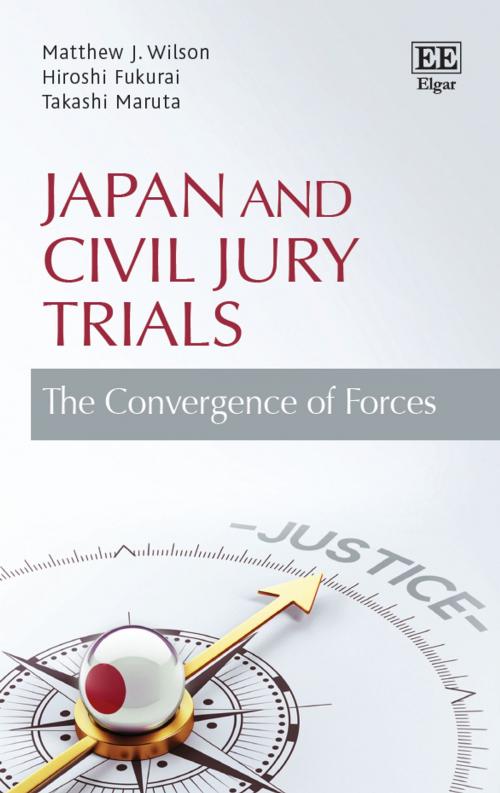| Author: | Matthew J Wilson, Hiroshi Fukurai, Takashi Maruta | ISBN: | 9781783479191 |
| Publisher: | Edward Elgar Publishing | Publication: | August 28, 2015 |
| Imprint: | Language: | English |
| Author: | Matthew J Wilson, Hiroshi Fukurai, Takashi Maruta |
| ISBN: | 9781783479191 |
| Publisher: | Edward Elgar Publishing |
| Publication: | August 28, 2015 |
| Imprint: | |
| Language: | English |
As societies around the world increasingly face complex challenges, effective solutions are at a premium. In response, reformers have advanced varied forms of jury systems as means of fostering positive political, economic, and social change. Many countries have recently integrated lay participation into their justice systems to effect fundamental societal change, advance public policymaking, and manifest popular sovereignty. This book showcases Japan’s successes and challenges in recently adopting a quasi-jury system for serious criminal trials, and advocates that the convergence of various forces makes this an ideal time for Japan to expand lay participation into the civil realm.
As societies around the world increasingly face complex challenges, effective solutions are at a premium. In response, reformers have advanced varied forms of jury systems as means of fostering positive political, economic, and social change. Many countries have recently integrated lay participation into their justice systems to effect fundamental societal change, advance public policymaking, and manifest popular sovereignty. This book showcases Japan’s successes and challenges in recently adopting a quasi-jury system for serious criminal trials, and advocates that the convergence of various forces makes this an ideal time for Japan to expand lay participation into the civil realm.















